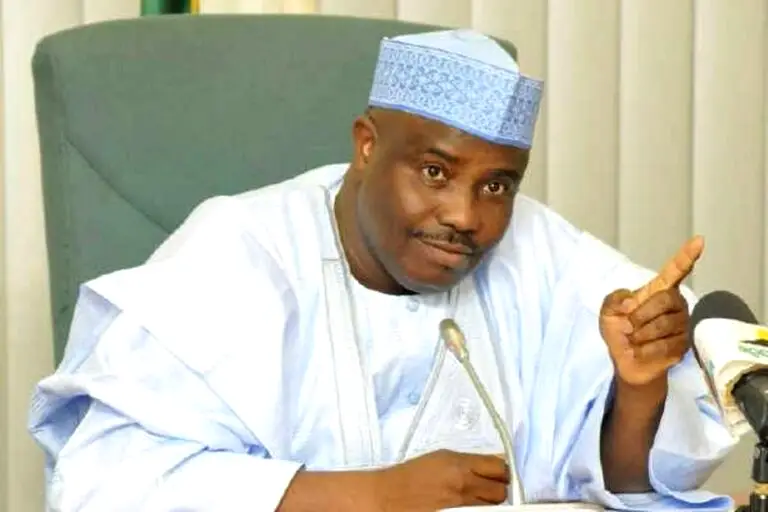[ad_1]
Mrs Muibat Akintayo, the Director and Head of the Department of Physiotherapy at the University College Hospital, Ibadan, in this interview with SADE OGUNTOLA, speaks on the essence of physical therapy in the treatment of many health conditions, including physical disabilities.
What are the common disabilities in Nigeria?
Different disabilities seen in Nigeria are visual, hearing, physical, intellectual and communication, but as a physiotherapist I will talk about the common physical disabilities. At the University College Hospital (UCH), Ibadan, we see many cases of cerebral palsy, orthopaedic conditions, spinal bifida, brachial plexus injuries and Down’s syndrome in children. Among adults, road traffic accidents are a major cause of spinal cord injuries and the reason they have partial or total paralysis. With partial paralysis, patients can live a near normal life. The second most common cause of physical disability among adults is arthritis.
Road traffic accidents are very rampant and what leads to this disability most of the time is wrong handling at the accident scene. They move them in a way that causes the spinal cord to shift and eventually cut. A cut spinal cord prevents messages from being sent from the brain to other parts of the body, so they become paralysed.
In the 60s and 70s, we had a lot of polio cases. But over the years, cases started dwindling and more cases of cerebral palsy and spinal bifida have taken over. Common illnesses like malaria and meningitis in their severe forms, for instance, can lead to paralysis. Also, we have a lot of conditions that can lead to partial or total paralysis when not properly handled or if the damage to the brain due to these diseases is enormous.
A baby that is too big for the birth canal that experience damages in the nerves around the shoulder and the neck may develop paralysis in one arm. It can become a permanent fixture in its life if the case is not properly managed.
So, what is the relevance of physiotherapy in the care of people with disability?
Physiotherapy, what is also termed physical therapy, uses exercises and other modalities like heat, electricity and ice to ensure people with disability attain the best function possible. Over time, if they keep to their treatment schedule and attend the clinic as at when due, they can regain their functions or end up with minimal disabilities. A lot of complications are also prevented.
Early presentation for physiotherapy, in cases of paralysis, can prevent a lot of complications. With exercises, the weak muscles of the limbs can be strengthened to regain all their functions. Even when they don’t regain full functionality, it will just be a minimal paralysis that they have.
Does it, therefore, mean that a person with full paralysis can regain the ability to walk with physiotherapy?
It depends. Now, there are different stages of paralysis. If the paralysis is not complete, the patient, with physiotherapy, can have full restoration of his ability to walk, provided the treatment commences early. When it is total paralysis, the patient may not be able to regain the use of the limbs with physiotherapy. But, physiotherapy in such individuals can help prevent a lot of complications that can prevent a good quality of life. Also, the limb will become very stiff without physiotherapy since the patient will not be able to move it.
Physiotherapy does more than make a paralysed limb walk again. Its services cut across different medical conditions. Take for instance a patient on admission in the ICU (Intensive Care Unit) needs physiotherapy to prevent or improve chest complications and maintain the integrity of muscles and joints. Recently, a patient came into the hospital and was admitted to the ICU and was referred for physiotherapy because he was unconscious. Because the relations are not informed why they were given a referral to physiotherapy, they did not bring the referral to our department until the patient regained consciousness because the parents felt it was not necessary then. They thought it could wait until the patient is conscious. But while the patient is on a mechanical ventilator and receiving other treatments, physiotherapists can help the patient to move the chest and the limbs through exercises.
Even after an orthopaedic surgeon has carried out surgery to repair a fracture, without the involvement of physiotherapists, the leg after it has healed may not be useful. The cast was to immobilise the limb, making the joint to be stiff. A physiotherapist needs to be seen to help to mobilise and to strengthen the muscles of the affected limb in order to make it carry out its functions.
Physiotherapists also help to manage pain effectively without drugs, including back pain and other pains that affect bones, muscles, ligaments, tendons and even nerves. Even physiotherapy can help a pregnant woman prepare for birth. They are taught different exercises, including breathing exercises, to help to make the delivery easier and safer. Even after delivery, physiotherapists can help them with prescribed exercises to get back to their initial weight and flat tummy before pregnancy.
If physiotherapy is applicable in different aspects of medical care, is it also applicable in cases of poor libido and sexual dysfunction?
Some exercises can be prescribed to help these conditions. There is no part of the body that cannot benefit from exercises, including the eye. In the medical world, healthy people are asked to exercise to ensure good quality of life and to prepare them for old age. Exercises also prevent a lot of diseases like diabetes and hypertension. By exercising, one can prevent or slow down the rate of progression of these diseases; so it is very important.
What are mothers supposed to know to ensure that children with a disability live normal and productive lives like other children?
First, they must ensure they see the physical therapist regularly; it is very important to help these children gain the function that has been lost. Such children should also be educated in special schools. We have special schools for them all over the country. The rate of their learning might be slow, but it cannot be stopped. Even children with autism can learn a lot of things and be productive; so we don’t have to keep them locked up at home. Parents should please love these children and be proud of them. There is a lady with cerebral palsy, with two certificates –including a master’s degree; she has a non-governmental organisation. She is doing so well; so we need to make sure that we bring these children out and then allow them to mix with other children.
What is being done to ensure access to physiotherapy care and rehabilitation for individuals with disability in Nigeria?
Well, I will say that 50 percent of Nigerians are not aware that physiotherapists are a group of professionals to help with their care and rehabilitation. We are trying to create awareness about the essence of physiotherapy care even in the media. This is already yielding results. When people come in and all they need is physiotherapy, we just go ahead and manage them and then refer them appropriately to other specialists where needed.
Poor access to transport and accommodation is a common complaint by people with disability. What is the way out?
We need the government to look into these issues for the betterment of people living with a disability. Government should look into ensuring affordable and accessible homes for them. Public buildings need to be made accessible too. Most of the buildings have staircases in them and not ramps. State governments should look into building houses and giving them out to physically challenged persons at a very low cost. It is not easy to get accommodation that will be suitable for them in this country.
Experts say that an epidemic of obesity looms. What is the way out of this?
We all need a change of lifestyle; we need to avoid sedentary living and build exercise into our daily schedule. If you want to be fit, you must take at least 10,000 steps a day. Very few people achieve this daily. The major reason for increasing cases of non-communicable diseases like diabetes and hypertension is obesity and it is linked to sedentary living and wrong diet. So, people should carry out exercises, even if it is only walking daily for a minimum of 30 minutes or 10,000 steps. It will help to prevent obesity, and also everyone should eat right.
Obesity is no longer only among the elderly; its incidence is increasing even among children for the same reasons. Most schools do not have fields for exercise; they do not encourage exercise in schools. Physical education is thought of as a subject; it is no longer practical. Government should bring out policies to enforce that schools have fields for sports and sporting activities or else we are preparing these children for more diseases in the future. We are having strokes among young ones now, even in their 30s. It was not so decades ago because people were more active.
YOU SHOULD NOT MISS THESE HEADLINES FROM NIGERIAN TRIBUNE
PICTORIAL EXPLAINER: How To Identify Fake New Naira Notes
The Central Bank of Nigeria (CBN) has released security features to help identify fake new naira notes. According to CBN’s template, the Security features to look out for are the following…
Ondo Councils’ Workers Shut Down Assembly Over LG Autonomy
LOCAL government workers under the aegis of Nigeria Union of Local Government Employees (NULGE), Ondo, on Tuesday, stormed the State House of Assembly, threatening a showdown with the lawmakers over the signing of local government autonomy…
FG To Discontinue Cash Withdrawal From Public Accounts
The Federal Government is putting the final touches to all necessary measures to stop cash withdrawal from federal, state, and local government accounts. The Director/Chief Executive Officer of the Nigerian Financial Intelligence Unit (NFIU), Modibbo Hamman Tukur, revealed…
Reps Probe Crude Oil Sales Over $2.4bn Revenue Loss
The House of Representatives on Tuesday unveiled plans to investigate the allegation bothering on the alleged loss of over $2.4 billion in revenue accruing from the illegal sale of 48 million barrels of crude oil export from 2014 till date…
Emefiele/DSS Tango: Falana Asks Judiciary To Treat Civil Liberty Cases Equally
LEADING rights lawyer, Mr. Femi Falana, on Tuesday addressed the controversial move by the nation’s secret police to arrest and detain the embattled Governor of the Central Bank of Nigeria (CBN), Godwin Emefiele…
EDITORIAL: CBN’s New Cash Withdrawal Limits
As a follow-up to its redesign of the N200, N500, and N1000 banknotes, the Central Bank of Nigeria (CBN) recently announced a new policy that mandates deposit money banks and other financial institutions to ensure that…
[ad_2]






